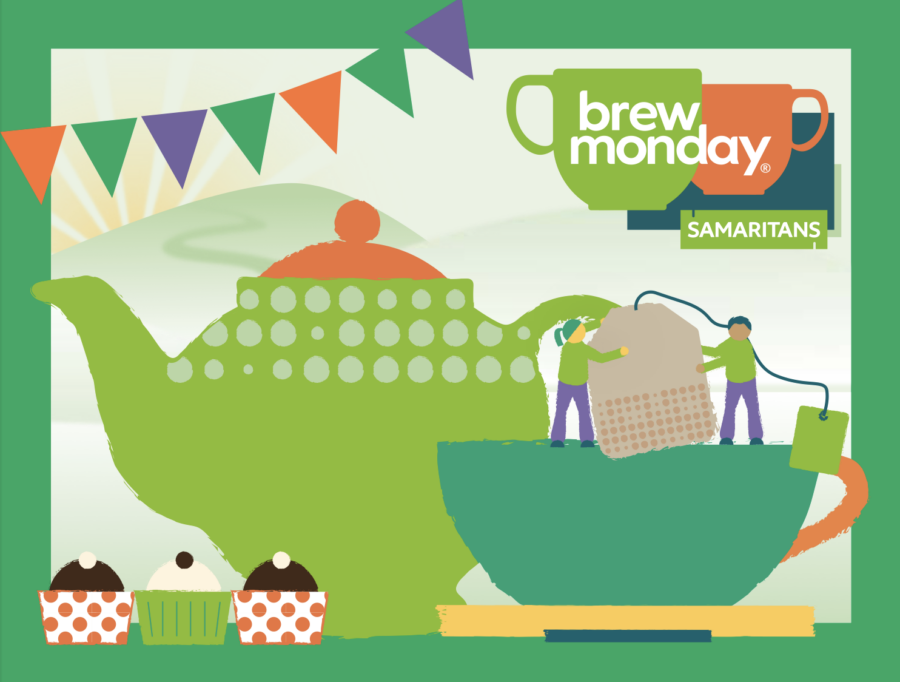
The third Monday of January is often referred to as ‘the most challenging day of the year’ and is dubbed ‘blue Monday’. We don’t know this to be true, but what we do know is that prioritising mental health and equipping young people with the skills to feel confident to share their feelings is vital. This year we are supporting the Samaritans’ campaign ‘Brew Monday’ to highlight the importance of talking about our feelings and connecting with others around us.
For ‘Brew Monday’, the Samaritans are encouraging us to have a cuppa with friends, family or colleagues. At Voice 21 we want to take this one step further and encourage conversations between students and their teachers, teaching assistants and other support staff and students and their peers. Empowering students to believe that their voice has value and developing their ability to articulate thoughts so others will listen is an important skill we are passionate about supporting Voice 21 Oracy Schools to achieve.
The Communications Trust (Talking about a generation, 2017) identified that “young people with poor communication skills are one and a half times more likely to have mental health difficulties, even after taking account of a range of other factors that might have played a part.” We know that without the skills to talk and the confidence to share how they are feeling, the mental health of our young people now and into the future will suffer.
A focus on oracy can support students to build successful relationships, talk through issues, express feelings and realise their voice has value. To cultivate a sense of belonging, of being heard and understood, it is important to provide students with opportunities to talk about how they’re feeling, if they are comfortable doing so. And, whether they’re sharing their feelings, or simply what they had for breakfast, it’s crucial that they feel listened to.
With this in mind, we want to share a variety of resources and top tips that you might want to use to develop oracy in your classroom that can support the wellbeing of every young person.
This secondary-focused oracy challenge uses the ‘listening wheel’ as a framework for students to understand what it means to be an ‘empathetic listener’.
You could use this resource as a basis to develop a shared language and understanding amongst staff and students about what it means to really listen.
Another way to encourage students to think deeply about how they can be effective listeners is to focus on the content of what the other person is saying. Focusing on how a speaker feels, what they are saying and crucially, what they are not saying is a great skill. Distinguishing between micro and macro listening is something you can find out more about in this short video.
A Blob Tree can be a great way to support students to name different emotions and describe how they are feeling. Used as a prompt for talk, students simply choose which blob person they most identify with and explain why. You could use it to prompt students to reflect on how they’re feeling about a particular piece of learning or as a way into a more well-being focused conversation.
Another activity to support students to name a range of different emotions is ‘Which Emotion?’ Provide students with a statement such as ‘Manchester United are going to win the league’ or ‘I’ve got double maths after lunch’ alongside a range of different emotions such as ‘excited’, ‘boastful’, ‘devastated’, ‘thrilled’, and ‘disappointed’. One by one, students say their statement like above as if they are feeling one of the emotions listed and their classmates guess the emotion they chose.
With Brew Monday focussing on encouraging all of us to spend time talking to one another over a cuppa, this type of activity could be something you can adapt in your school. ‘Tea and Talk’ sessions could take the form of an extended form time session each month. The informal sessions, in which students drink tea and eat sandwiches, create the space for a rolling discussion about mental health and identity. Crucially, students are pre-taught key vocabulary to use in the sessions and are provided with sentence stems to opt-out of sharing, if they do not feel comfortable.
We know how important supporting students’ mental health is. Creating an environment for talk and building their confidence to talk are skills which young people can use now and into their future. This Brew Monday we hope that you can find time to talk with your colleagues, friends, family and students about the importance of talking and expressing how we all feel.
© 2022 Voice 21. Voice 21 is a registered charity in England and Wales. Charity number 1152672 | Company no. 08165798